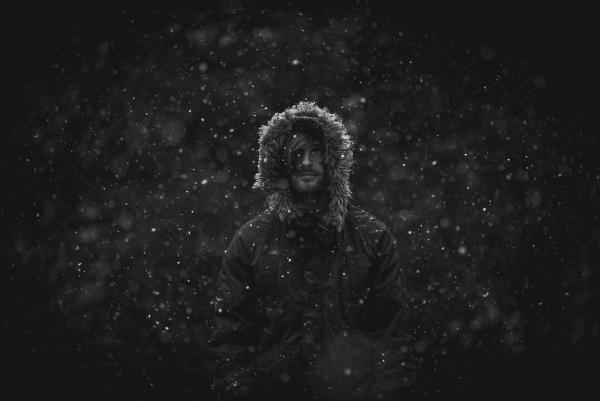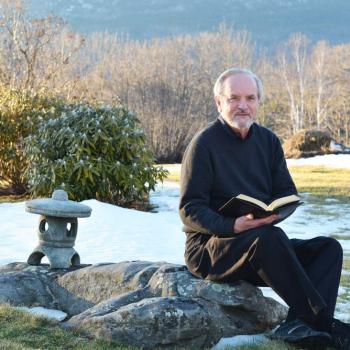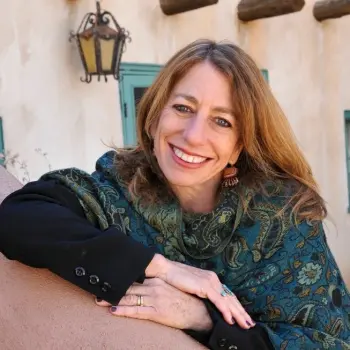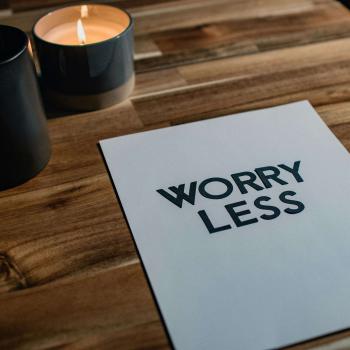The holidays are over and the Christmas decorations are coming down. There are copious amounts of sooty-white snow on the ground and wind chills in the single digits. The sun comes up late and sets early. Spring is a distant 2 ½-month trek away.
On this January day, you may have found that (like me) a dark cloud has settled on your soul.
I used to be a competitive 5K runner and can recall having a conversation with a fellow runner about his strategic approach to the 3.1-mile race. His response: “I run as fast as I can for the first two miles and then just try to hang on.” It strikes me that this is my approach to living: enjoy life to its fullest through the first week of January, and then try to hang on until spring arrives.
Some see our blue periods not as a time of darkness, but as an opportunity for spiritual growth.
When the 16th-century mystic Saint John of the Cross was imprisoned for not obeying an order from the Roman Catholic church, he used the time to write the book (and coin the term) Dark Night of the Soul. As hinted at by the book’s title, John’s incarceration was hellish and included regular beatings and solitary confinement. But he saw it as the “start of a journey that will lead to the blessed place of perfection”, one in which there would be a divine union between his soul and God.
It’s hard to imagine such a divine union when one is trying to stay afloat in a sea of melancholy. During these times, it can seem as if God has disappeared, leaving us to fend for ourselves. The religious scholar Mirabai Starr, in her modern translation of Dark Night of the Soul, describes this state-of-mind vividly:
The soul is left baffled and bereft. The soul sits helpless…and simply breathes into the darkness. There is nothing else to do. The seeker in this state may be shy about disclosing his inner struggle to anyone for fear it will reveal nothing but his own deadly doubts and spiritual failures.
So, what do you do when you feel like a spiritual ne’er-do-well, abandoned by the divine spirit, left to fight off the bullying emotions of doubt and despair all by yourself? Starr says there is really only one course of action:
All the seeker can do is surrender to the darkness and take humble refuge in the ineffable stillness…we have nowhere to go but into the silence.
It is here in the silence that Starr believes we must be fully present in “the tender, wounded emptiness of our own souls” and that means not hiding from or ignoring the darkness, even though this may be our natural instinct, but facing it head on.
It’s about not turning away from the pain but learning to rest in it. Rather than distracting ourselves from the simple darkness at our core, we sit with it, paying close attention, and opening our hearts to all that is left, which is love.
Wise advice on living with the symptoms of the winter doldrums can also be found in the words of Thomas Moore. In his book Dark Nights of the Soul, A Guide to Finding Your Way through Life’s Ordeals, Moore advises us that the best way to proceed is not to fight the blues, but instead to “live in, and with, the darkness”:
Go with developments, rather than against them. If you feel empty, empty out your life where it needs it. If you feel sad, let sadness be your dominant feeling. Being in tune with your deep mood is a way of clarifying yourself. Speak for it. Show it. Honor it.
Importantly, Moore argues that when you feel sad for extended periods, it is best not to treat these moods with pharmaceuticals. I agree that, unless one is clinically and chronically depressed, it is best to ride out these periods as best you can, especially when the symptoms can be lessened through exercise, proper sleep and diet, meditation and/or prayer. Moore warns:
Ours is still a therapeutic society that values the removal of symptoms over the soul’s sparkle and shine…broaden your imagination of what is happening to you. If your only idea is that you’re depressed, you will be at the mercy of the depression industry, which will treat you as one among millions, for whom there is only one approved story.
The dark night is a time for soul work, for digging deep into the self, and in Moore’s words discovering “what it is to live religiously”. The author explains what happens during this period, when you experience the world from the point-of-view of the soul:
It is the deep, dark discovery of roots and cellars, the opposite of enlightenment, but equally important and equally divine…letting your spark light up a dark and dangerous world is a way of healing both you and your world.
Moore sees the dark nights of the soul as indispensable to our spiritual growth. While he recognizes the difficulties and challenges they pose, he believes the darkness can add “character and color and capacity” to our lives, and are a gift to be appreciated. In his words:
Nothing could be more precious than a dark night of the soul, the very darkness of which allows your lunar light to shine. It may be painful, discouraging, and challenging, but it is nevertheless an important revelation of what your life is about. In that darkness, you see things you couldn’t see in the daylight.













